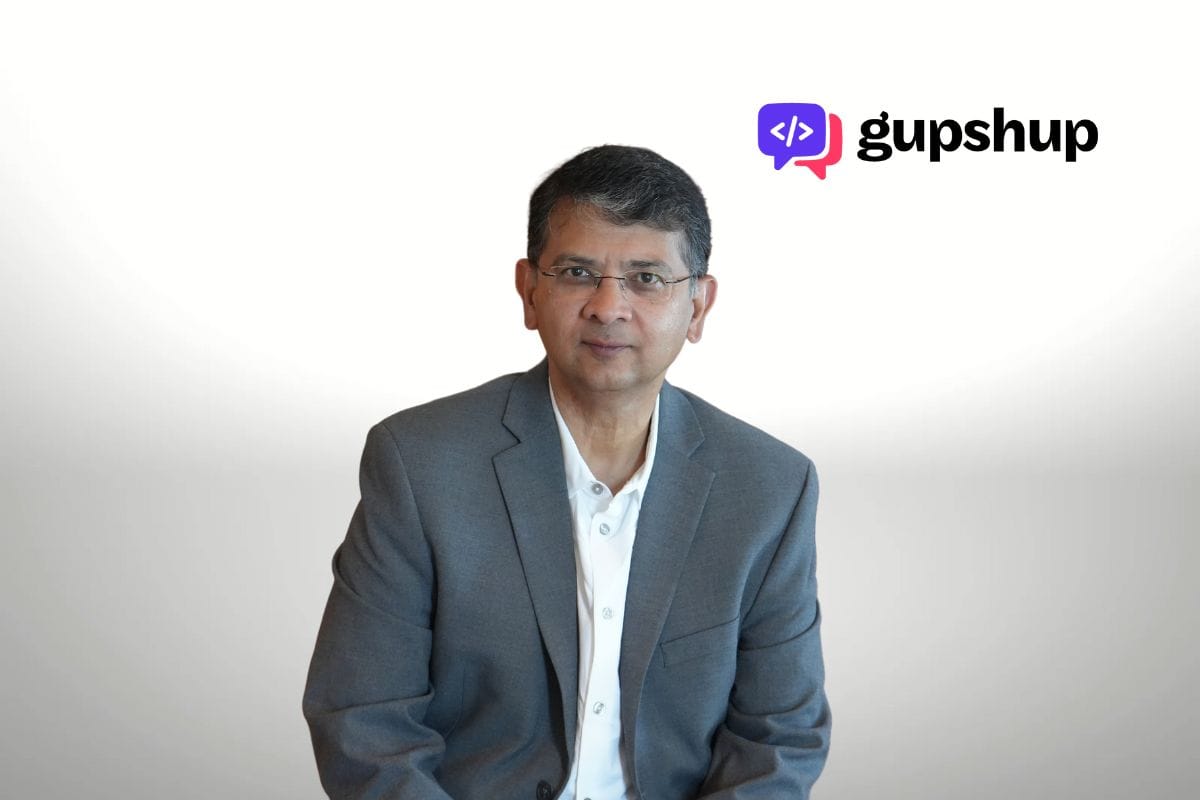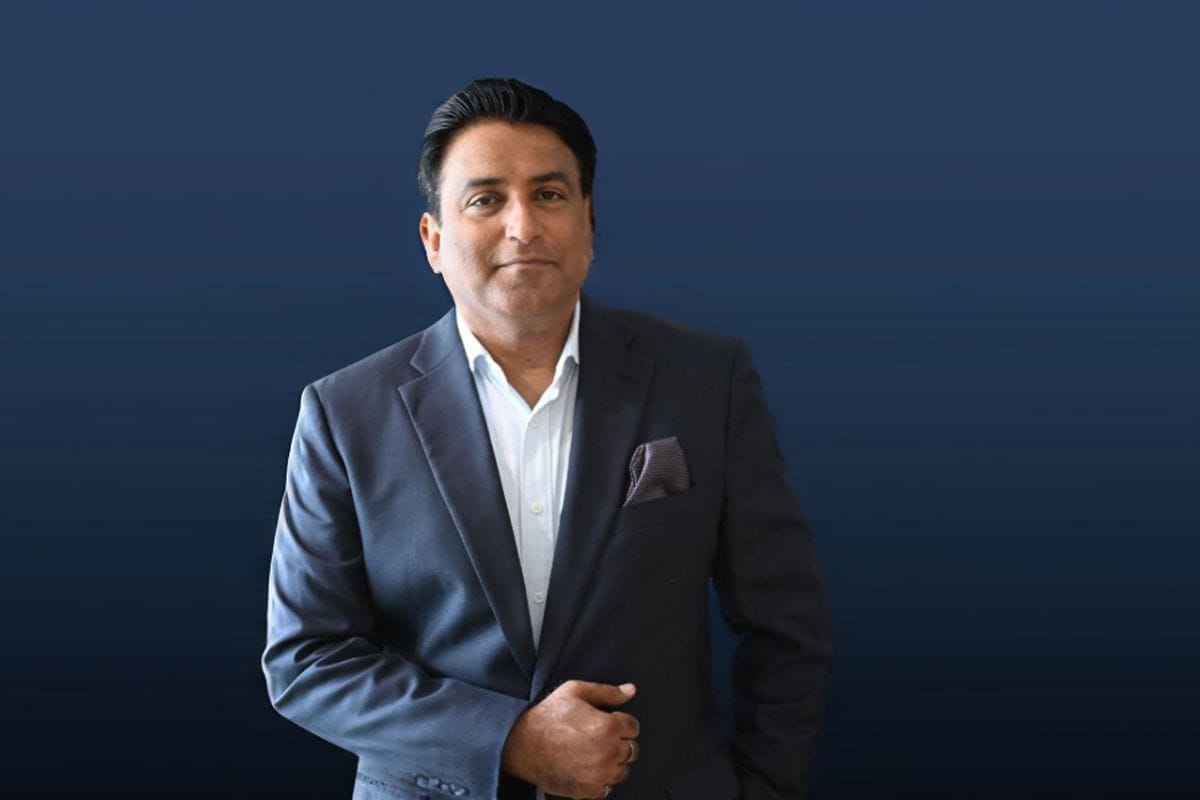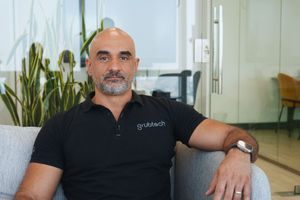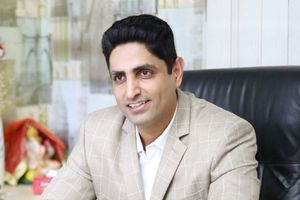Tally Solutions is a software company that provides enterprise resource planning (ERP) software primarily for small and medium-sized businesses (SMBs). Nupur Goenka, the Executive Director at Tally Solutions, is at the helm of guiding the company's International Business, Corporate Finance, Corporate Information Systems, and Cloud Operations. With a focus on streamlining and driving these functions to align with the company's goals, Nupur's leadership is pivotal in Tally Solutions' journey toward innovation and growth.
Co-founding Clustr in 2013, a big data and analytics subsidiary of Tally Solutions, Nupur has demonstrated her commitment to empowering Indian businesses by democratizing access to analytics. A Northwestern University alumnus with a background in Cognitive Neuroscience and Business Studies, she also leads Semicolon, a digital publication focused on mental health.
In this exclusive interview, Nupur shares insights into her journey, Tally Solutions' strategic initiatives, and her vision for the future of ERP solutions.
Can you describe your journey at Tally Solutions and how your role as Executive Director has evolved over the years?
I was born into the Tally family. My grandfather and father founded the company, so from day one, I have been a part of the Tally journey. After college, I started a company with a friend from university. It was a startup, but it was run as a subsidiary within Tally. I did that for a few years. On April 1, 2019, I formally took on the role of Executive Director. It began with a few functions and departments. Currently, I run the company with my brother, Tejas Goenka, who is the Managing Director.
Recently, we achieved a significant milestone by reaching 2.5 million customers worldwide, including several million users.
It was a great accomplishment, but we took a step back to plan how we can reach 10 million, 20 million, or even 50 million customers in the coming years.
Tally Solutions has been a pioneer in the SMB software market. How do you see the company's role evolving in the next decade in terms of technological innovation and market influence?
Before we talk about evolution, I think we should focus on the principle that Tally has been built on since its inception. My grandfather, in the early 90s, when my father first started the company, used an analogy: "When I buy a car, I don't buy it to be a mechanic. I just want to drive the car." Similarly, when you buy software, you want it to work seamlessly so you can run your business without having to manage the software itself. This principle has guided us throughout Tally's history in creating software for our customers.
While we haven't always been perfect and there are areas we need to improve on, this core principle of creating technology that empowers entrepreneurs remains our focus.
We aim to develop software that can be installed and then essentially forgotten about, allowing users to concentrate on running their business. This approach drives all our innovations and technological advancements.
TallyPrime 4.0 features
What are some of the most significant strategic initiatives you have led at Tally Solutions that have had a lasting impact on the company's growth and direction?
A lot is happening at Tally, but I believe our international story is particularly noteworthy. For about a decade, we focused intensely on the Indian market, especially on compliance and regulatory changes. However, in recent years, we've shifted our focus to become more global, emphasizing international markets and understanding the unique business ecosystems and entrepreneurial landscapes outside of India.
We've made significant changes in our product development, marketing strategies, and international teams to support this global orientation. We're expanding our offices, growing our teams, and helping our partners scale up. This shift, which has been underway for the past few quarters, marks a critical point in our company's journey. We are now poised for exponential growth in several regions over the next few years, which I consider one of the most important developments at Tally.
Given Tally Solutions' extensive reach across various markets, how do you tailor your revenue generation strategies to address the unique economic conditions and business environments of each region?
Regardless of our extensive market experience, we remain a very agile company. We have customers in over 90 countries, though our core focus is on a select few.
Our approach is to be extremely flexible in our business, revenue, and licensing models to maximize value for our customers, whether directly or through partners.
Over the years, we've implemented a variety of models, including perpetual licensing, service models, rental models, trial models, and educational programs. Different strategies have succeeded in different countries, depending on the local culture and economic conditions. This flexibility and adaptability are central to our operations.
What innovative revenue models are you exploring to complement the traditional software licensing model?
I'm not sure if it's innovative, but it's a principle we've always followed. As a company, we strive to be the simplest to transact with. For our customers, the process should be straightforward from the moment they decide to buy our product and throughout their relationship with us. We don't lock customers into long-term commitments.
Our current licensing model is perpetual, with a subscription fee for connected services. You can buy the product once and have lifetime access without worrying about annual renewals.
This principle of simplicity is something we are committed to, and while we may make changes in the future, we will always aim to keep the transaction process as simple as possible for our customers.
How do you measure the effectiveness of your revenue strategies, and what key performance indicators (KPIs) do you focus on?
Broadly, we focus on two key areas. First, we prioritize customer delight. Everything we do—from product development to marketing and customer relationships—is centered around understanding what our customers need to be successful. This often involves helping them use our products in the best way possible for their business. Many of our new customers come from referrals by existing customers who have had positive experiences with our product and support.
This word-of-mouth referral system is a critical KPI for us.
Second, we work closely with our partners, who are entrepreneurs across the country. We focus on their growth, helping them expand, build capability, and increase capacity within their teams. Supporting our partners effectively is another crucial indicator of our success in the market.
How do you prioritize revenue growth while ensuring substantial investment in research and development to stay ahead in the market?
I see revenue growth and research and development as complementary rather than conflicting. As a product and technology company, our focus is on creating exceptional experiences within our products. This involves tackling difficult problems, developing new technologies, and applying them effectively, which requires significant investment, effort, patience, and discipline in R&D.
For us, revenue is not a primary target but a byproduct of our commitment to innovation and product excellence.
By investing in R&D, we inevitably create value for our customers, even if it means making mistakes along the way. Solving these challenges ultimately leads to customer satisfaction and drives revenue growth.
The ERP software market is highly competitive with numerous global and local players. What unique competitive advantages does Tally Solutions hold, and how do you leverage these to maintain market leadership?
It's evident that over the past several years, the barriers to becoming a software developer and releasing a product have significantly lowered. Today, with just a laptop and access to numerous courses, anyone can learn to develop an application within a matter of hours. There are ample distribution channels available, making market entry easier than ever.
We've faced competition since the late 80s and mid-90s, and it has never diminished. However, as a company, we don't focus on the competition. Instead, our emphasis is on continuously setting benchmarks and exceeding customer expectations.
Our primary focus is on delivering exceptional experiences through our products and maintaining strong relationships with our customers. This dedication to customer satisfaction drives everything we do.
How do you foresee the competitive landscape changing with the rise of cloud-based ERP solutions, and what measures is Tally Solutions taking to adapt and compete?
I see more and more players entering the market, making it increasingly crowded. As a result, customers are spoiled for choice. That's why our focus remains on creating the best possible products.
If we don't deliver exceptional products and get caught up in the rat race, it won't excite us or allow us to deliver great value.
We take a step back to figure out how we can genuinely change the lives of entrepreneurs, and we approach this with discipline. This commitment to creating meaningful, high-quality products is what will enable us to move forward and stand out in the market.
Visuals from Tally Solutions Office
Has your background in Cognitive Neuroscience influenced your approach to technological innovation and problem-solving at Tally Solutions?
Great question and the answer is absolutely no. Growing up, my dad had a unique perspective on education. He didn't care if I got a C or D or even failed an exam. He was the kind of parent who, if I asked him to wake me up at 4:00 in the morning to study, would forget and wake me up half an hour before the exam, causing me a mild panic attack.
For him, it was never about the specific subject. He always told me and my brother that school and college are about learning how to learn. He encouraged us to take any subject we wanted but emphasized that the essential skill to acquire was the ability to learn anything. His philosophy was that if you want to become a doctor ten years down the line, you should be able to learn how to become one. This approach meant we weren't confined to any specific subject for life.
Because of this attitude, I entered college wanting to be a journalist but ended up studying astrophysics, computer science, mathematics, and psychology. Eventually, my advisor told me I needed to pick a subject to graduate, so I chose cognitive neuroscience. It was interesting, and I enjoyed the 18 months I studied it, even though I had no intention of becoming a doctor.
This experience taught me valuable life skills, but nothing specifically influenced my professional path.
With your involvement in Semicolon, what insights have you gained from the mental health community that have influenced your approach to corporate culture and employee well-being at Tally Solutions?
Unfortunately, we are still in a place where very few people feel comfortable speaking up about their mental health, and I find that surprising. I deeply appreciate every person who dares to talk about it, whether it's in a public forum or privately with friends, family, or loved ones. I've been through it myself, and I know it takes a lot of bravery.
The influence of opening up about mental health has been remarkable. I didn't expect so many people to reach out to me for therapy recommendations, access to mental health resources, or to share their own experiences, saying, "I never told anybody, but I resonate with what you're going through." This has shown me the power of not feeling alone.
Inside the company, the most significant impact has been ensuring that everyone has access to mental health support at any given time.
It's not about setting an expectation that they need to talk, because I understand how difficult that can be. It's about making sure that everyone knows help is available, whether they want to seek it publicly or anonymously. This support system is crucial, and it's the most important thing I've implemented in the company regarding mental health.
What emerging technologies do you believe will have the most significant impact on the ERP software industry in the coming years, and how is Tally Solutions preparing for these changes?
There are several developments in the market, and I believe there are many ways we can improve automation to enhance productivity in the ERP space, which is essentially the main goal of ERP systems. One of the most surprising challenges is that businesses, whether large or small, often operate in isolation. It's difficult for them to gain insights about their ecosystem, industry, suppliers, and customers.
Connecting businesses to their broader ecosystem, and leveraging data analytics and intelligence, will be a major focus area for Tally and the industry as a whole.
This connectivity can significantly benefit businesses globally. The role of AI in this process is crucial, and there is still much to explore in making these technologies accessible and affordable for small businesses.
I've also been considering the potential of IoT in enhancing automation, especially in areas like warehousing and inventory management. IoT can help collect data from physical devices, further boosting productivity. Additionally, advancements in user interfaces and human-computer interaction are creating exciting opportunities. The world of technology is rapidly evolving, and there are many nuanced innovations we can bring to our customers to improve their experiences and operations.
With your experience at Clustr, how do you see big data and analytics transforming the way SMBs operate and grow?
The entire concept behind Clustr was straightforward: to break the isolation that small businesses often experience.
Our goal was to bring the power of big data to small businesses, enabling them to gain insights into their customers, suppliers, and potential clients. Currently, it's very challenging for these businesses to access and utilize this information for decision-making, and I believe no one has fully cracked this space yet.
We aim to focus on this challenge, striving to create the best possible experience for our customers, so they feel empowered and connected rather than isolated. I genuinely believe that achieving this will be game-changing for small businesses.
What are some of the biggest challenges in democratizing access to data and analytics for MSMEs, and how have you addressed these challenges?
The main challenge is security and privacy. At Tally, we've engineered our product so that no one—neither myself as the owner nor any developer—can access a customer's data. Very few products can boast this level of privacy, and it's something we hold in high regard. Our goal is to harness the power of data without compromising this boundary. This is a unique approach to solving the challenge, and we're dedicating a lot of effort over the next several quarters to understand how we can achieve this.
Ensuring data privacy while leveraging its benefits is our top priority.
How do you ensure that the analytics tools provided are accessible and understandable for small business owners who may not have a technical background?
I don't have a straightforward answer, but it really comes down to the mindset with which we approach the problem. It's easy to launch a product that we believe adds value, but the nuanced approach involves sitting down with a diverse range of customers. We consider users who have never used computers before, as well as those with multiple devices who use everything on every device, like myself. The challenge is to create a product that caters to both ends of the spectrum.
The magic lies in making the product truly usable without assuming any specific level of technical expertise from the user.
Can you share a pivotal moment in your career that significantly shaped your approach to business and leadership?
There have been many pivotal moments, but I'll share a couple. One significant moment occurred post-COVID when I visited Dubai and met all our international partners in person for the first time. The Middle East is our second largest market after India, and it was eye-opening to see what our ecosystem has achieved over the last two decades and to learn about their aspirations for the future. Our team's efforts to support this journey were evident, and the interaction felt like dealing with an extended family. This experience profoundly shaped my perspective on the international market and how we should invest in it. It was an emotional and pivotal moment for me.
What are your long-term goals for Tally Solutions, and how do you plan to navigate the challenges and opportunities that lie ahead?
We have many plans for Tally. We've just crossed the 2.5 million license mark, and we're aiming for 3.5, 5, 10, 50, and even 100 million.
It's going to be an exciting journey because we don't have all the answers yet. We need to figure out what to do on the product and technology sides to reach these milestones. We have many new features and updates coming to Tally Prime over the next several quarters, which we are very excited to bring to the market.
Additionally, we're working on in-house projects to envision what the next decade could look like for Tally. Both Tejas and I are very curious about how the landscape is shifting and how we can capitalize on new opportunities. Our goal is to stay ahead of the curve and continue being a pioneer in the market.
Watch the interview:
Also Read:














